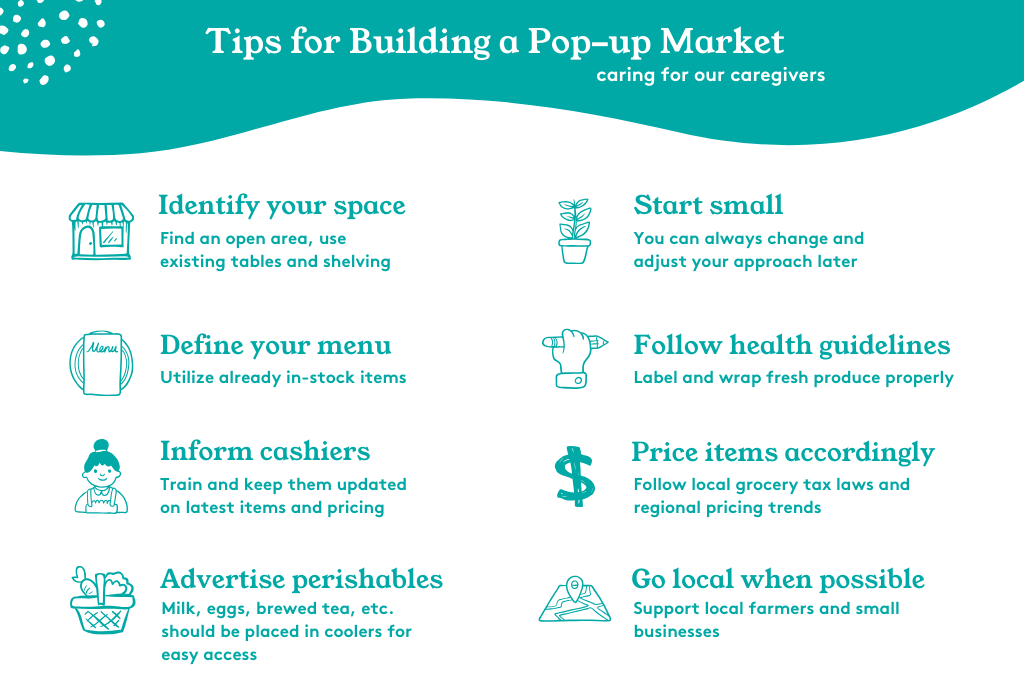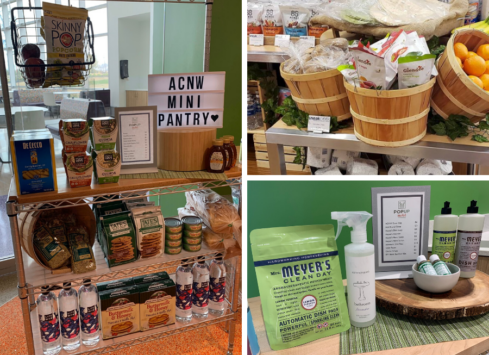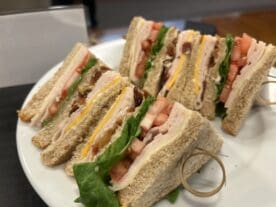Caring for caregivers during the coronavirus—COVID-19 outbreak
As our healthcare partners across the country continue to battle the novel coronavirus—COVID-19, we’re using the Power of Food to offer them comfort during these challenging times.
From care packages to take-home meals and pop-up markets, we are finding ways to take care of our caregivers, our staff, and their families, while maintaining the strictest safety measures. In the following weeks, we will share with you stories of how these programs have worked for us and tips on how to implement them. You’ll find suggestions on how to start a pop-market at the end of this blog.
Morrison Healthcare is introducing pop-up markets inside our cafés, where shoppers can find essential products like bread, milk, eggs, and paper goods.
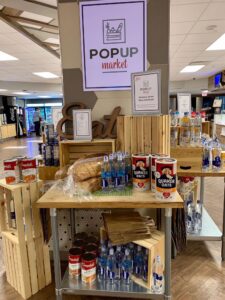
“The pop-up market has been successful here at UVA, not because it’s driving sales, but because it is offering an outlet to our brave men and women who are fighting the spread of COVID-19 on a daily basis,” said Chadwick French, director of retail at UVA Health System.
When staff can buy essential items at their workplace, they make one less trip and limit their exposure to the virus, according to French. It also allows employees to grab food to share with their coworkers.
“As one employee told me, she loves the fact that she can grab a bag of bagels for her colleagues so they can start their day on the right foot,” said French.
The pop-up market has also been an avenue for employees who want to help others by buying hard-to-get items. “One person said that being able to provide supplies to their elderly neighbors right now is how we get through this as a society,” said French.
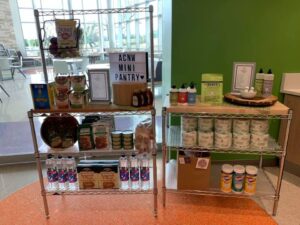
The Food and Nutrition Services Department at Arkansas Children’s NW Hospital has also set up a pop-up market. The “Mini Pantry,” as they call it, is now the place to get some basic needs.
“My heart hurts for our healthcare heroes right now. And at the same time, what an amazing opportunity we all have to step up to the plate and serve these people with Compass Group’s far-reaching resources. Items hospital staff can’t find in our community like hand soap, antibacterial wipes, eggs, and bread, we can stock and offer to them,” said Megan Hermann, foodservice director at Arkansas Children’s Northwest.
“We appreciate these little touches that make our lives easier,” wrote Carrie Smith, head of social work at Arkansas Children’s NW, on a social media post.
Coronavirus Covid-19 crisis: Other ways to support
In addition to the pop-up markets, some Morrison locations are offering carry-out pizzas for hospital employees to enjoy at work or take home after their shifts.
“The to-go pizza program is a perfect way to give colleagues a chance to share a meal or take a break from it all at a reasonable price. I have heard from our security team here that being able to share a slice of pie together is the best part of their day,” said French. “It really puts into perspective how little things can make a difference in these challenging times.”
At Arkansas Children’s NW, Chef Brooks has been making cast iron bread once a week to offer to the staff, as well as pizzas and meals for staff to purchase and take home.
“We’ve started work in our Chef’s garden to bring some happiness to staff when they’re eating lunch outside. We all have the same opportunity to show the value we bring to the table as Morrison foodservice leaders,” said Hermann.
You can do it too
Pop-up markets are a meaningful yet simple way of showing support to your hospital staff. Here are some tips and best practices we’ve learned as we implement mini-markets in different Morrison Healthcare accounts:
- Identify your space – look for an open area and use existing tables, risers, baskets, and shelving.
- Define your menu – utilize items that you currently have in stock.
- Advertise perishable items—like milk, eggs, brewed tea, and sliced deli meats. Designate space in the cooler where those items can be easily accessed by employees or guests. Perishable items can also be stored in grab-and-go coolers.
- If offering fresh fruits and vegetables, follow your county’s health department requirements for bagging, labeling, or wrapping, and ensure guests are not able to touch them with their bare hands.
- Product pricing may vary based on regional pricing and availability. Make sure you understand local grocery tax laws and price accordingly.
- Make sure the price list is accurate and easily accessible for guests. Check local pricing on a weekly basis.
- Ensure cashiers are fully trained and have up-to-date lists of the items being sold, proper codes, and pricing.
- Support local vendors or farmers whenever possible.
- Start small. You can always adjust later based on demand.
